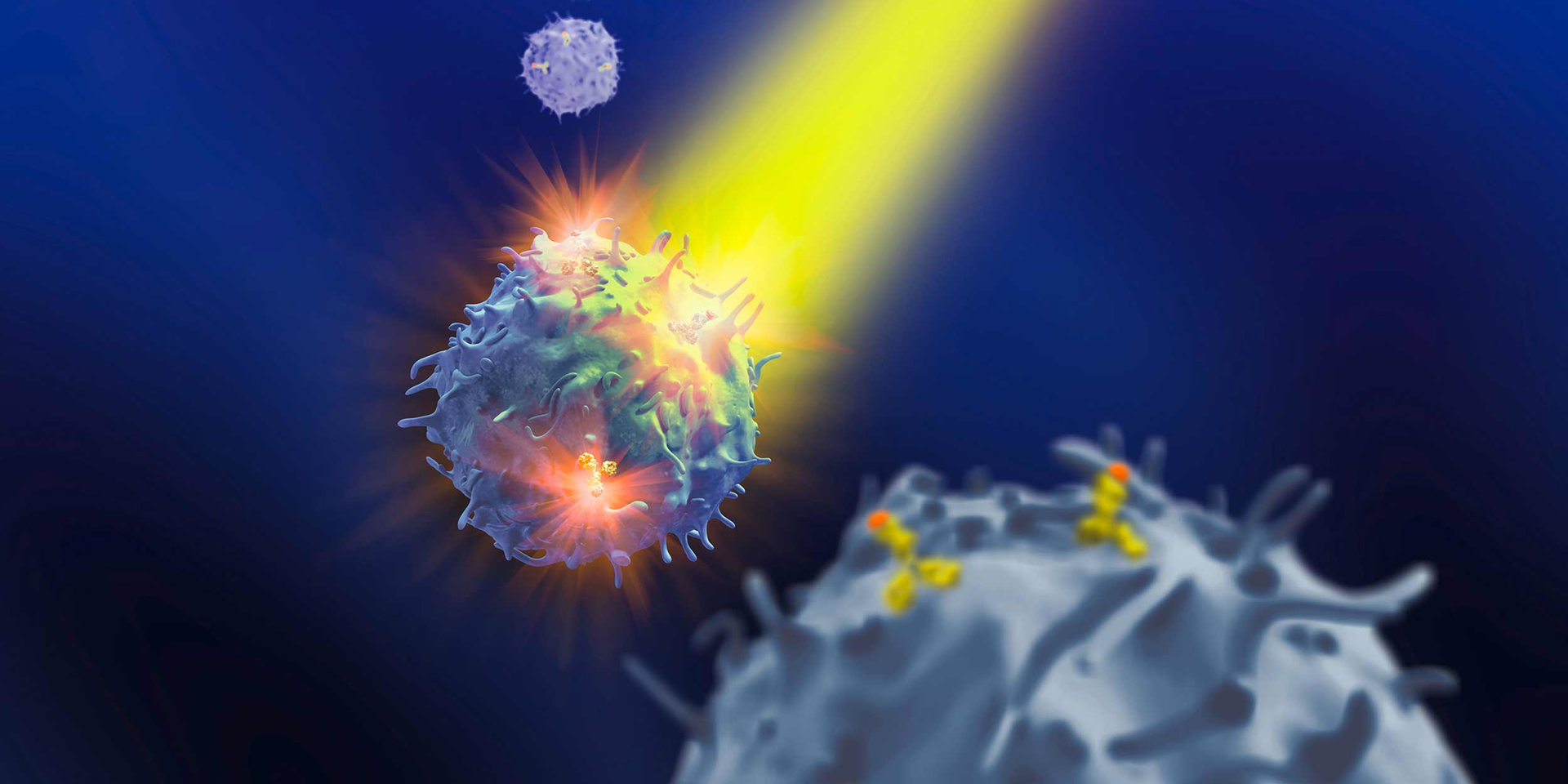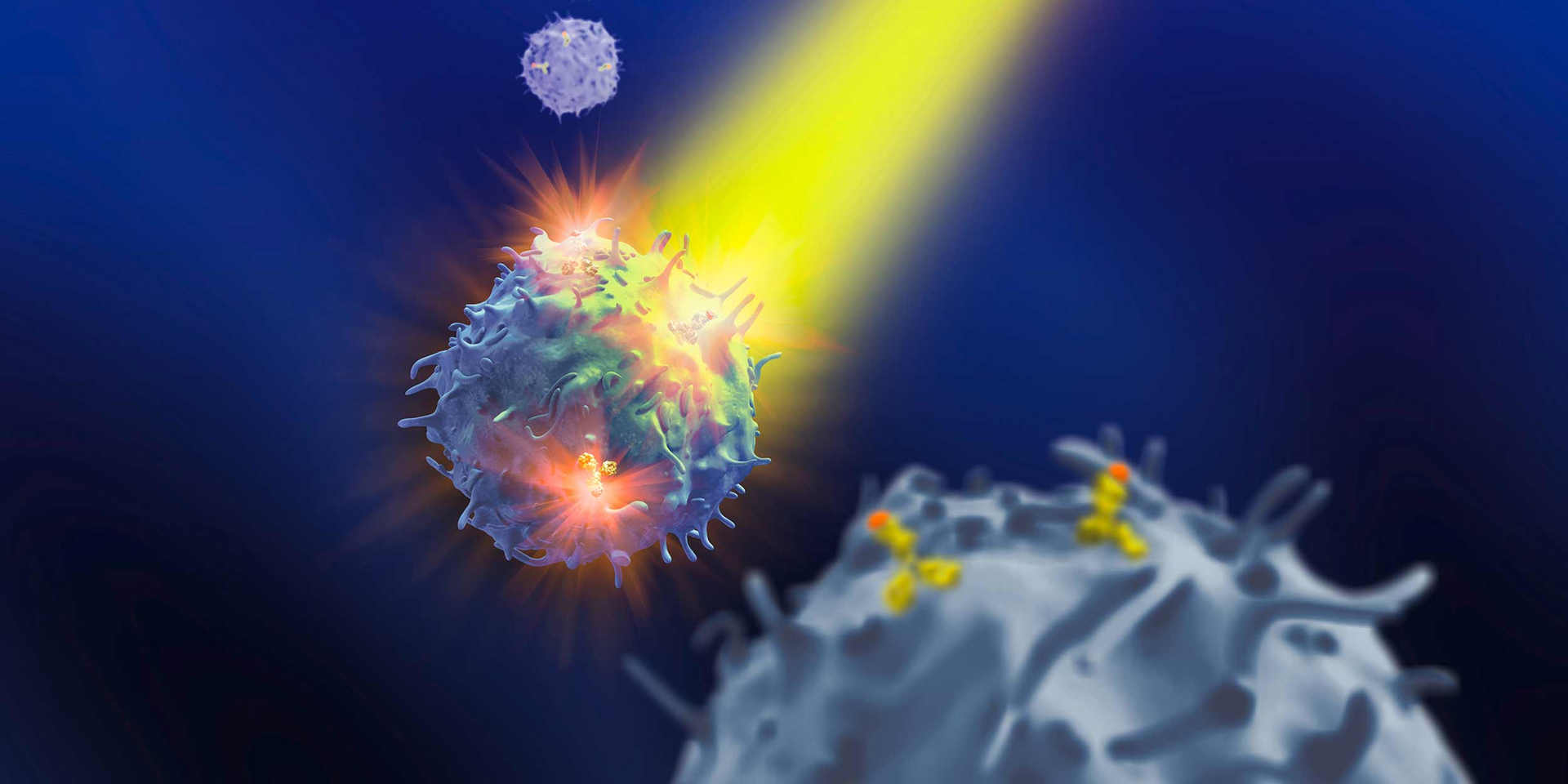TABMED 2024 projects
The main component of the summer program is an active participation in the selected medical and pharmaceutical research project offered by the staff members of the Collegium Medicum, please see the topics and their descriptions below. Interested students are welcome to contact possible advisors for more details concerning the foreseen projects and discuss the dates that the project could be undertaken.
Medicine, health sciences:
Pharmacy:
- Synthesis of new drug-candidates with 1,2,4-triazole moiety and assessment of their potential biological activity
- Drug research using Computer-Aided Drug Design
- Application of computational methods to drug pharmacokinetics research
- Application of in silico methods in the study of drug liberation, absorption, transport, metabolism, and removal
- Developing new drugs in treatment of breast cancer - molecular modeling phase study
- New drugs active in treatment of colorectal cancer design - in silico research study
- Developing new drugs in treatment of chronic myelogenous leukemia - molecular modeling phase study
Medicine, laboratory medicine, health science:
- Analysis long-term phenotype changes of peripheral blood cell populations using flow cytometry method in patients after bariatric surgery
- Analysis of the long-term phenotype changes of peripheral blood cell populations using flow cytometry method, in patients with neurodegenerative diseases
- Assessment of selected pro and anti-inflammatory parameters in patients with neurodegenerative diseases
- Assessment of selected proinflammatory parameters in obese patients after bariatric surgery (BS)
Health sciences:
- Cancer prevention strategies and communication models for people with intellectual and developmental disabilities
- Co-production and co-design models and approaches with people with intellectual and developmental disabilities in selected UE healthcare systems
Hepcidin in ischemic stroke: systematic review of observational studies

Iron is a microelement that has a dual nature - on the one hand, it is needed to carry out key processes in the body, but on the other hand, when it occurs in excess, it is extremely toxic. For this reason, there is a sophisticated mechanism in the human body responsible for controlling the absorption and release of iron. A key role in these processes is played by hepcidin. Its mechanism of action involves the internalization of the membrane iron transporter - ferroportin. In practice, this means that in the case of high iron levels, hepcidin inhibits absorption and release, thus protecting the body against iron toxicity. The latest literature shows that disturbances in iron metabolism, with a predominant role for hepcidin, may play a key role in the pathogenesis of ischemic stroke. However, these data are fragmentary and need to be supplemented.
One of the forms of searching for answers to questions bothering a scientist is to perform a systematic review with a meta-analysis. The purpose of such a scholarly synthesis is to summarize the literature published so far in a specific field systematically and in a very orderly manner. This is thanks to a rigorous methodology, allowing the selection of manuscripts that meet the inclusion criteria from bibliographic databases, which helps minimize bias during the analysis of the results. A systematic review may be combined with a meta-analysis, i.e., a quantitative analysis of previous results by other authors.
This research project aims to familiarize international students with the principles of conducting a systematic review. The primary goal will be to assess the relationship between hepcidin and ischemic stroke using a systematic review. The student will learn the rules of registering a systematic review in PROSPERO. The rules for implementing a systematic review by the Preferred Reporting Items for Systematic Reviews and Meta-Analyses (PRISMA) statement will also be discussed in detail. The student will independently perform a systematic review based on four bibliographic databases. If the extracted data are sufficient, the student, with the participation of the scientific supervisor, will conduct a meta-analysis of the obtained results. The completed synthesis of research data will be used to prepare publications for the journal from the Philadelphia List.
| Supervisor: | Associate Professor Artur Słomka, PhD, DSc (artur.slomka[at]cm.umk.pl) |
| Department of Pathophysiology | |
| Internship period: | August 2024 |
| Scientific discipline: | laboratory medicine, pharmacy |
^ ^ ^ ^ ^
Synthesis of new drug-candidates with 1,2,4-triazole moiety and assessment of their potential biological activity

The search for new pharmacological substances is an important task in the search for more effective drugs for specific diseases. The main sources of new substances are compounds of natural origin (e.g. plant extracts) as well as those obtained by chemical synthesis. The 1,2,4-triazole moiety is an important pharmacophore present in many drugs present in the market: fluconazole, itraconazole, alprazolam, estazolam, ribavirin, rizatriptan, anastrazole. The 1,2,4-triazole ring occurs also in many compounds with various biological activity e.g: antibacterial, antifungal, antiviral, anticonvulsant, anticancer and anti-inflammatory.
The aim of the project is to obtain a series of new 1,2,4-triazole derivatives and to estimate their potential biological activity using computational techniques. Laboratory research tasks will include the synthesis of starting compounds (amidrazones), and obtaining 1,2,4-triazole derivatives in the reaction of amidrazones with methacrylic anhydride. The obtained compounds will be purified by crystallization and characterized by spectroscopic methods (1H NMR, 13C NMR). Computational research tasks will include predicting bioavailability parameters of the obtained compounds and their potential biological activity with the use of selected programs (eg. pkCSM, PASS). After the end of the project, the obtained 1,2,4-triazole derivatives will be sent for appropriate biological studies.
| Supervisor: | Renata Paprocka, PhD (renata.bursa[at]cm.umk.pl) |
| Department of Organic Chemistry, Faculty of Pharmacy | |
| Internship period: | 5 - 31 August 2024 |
| Scientific discipline: | pharmacy |
^ ^ ^ ^ ^
Drug research using Computer-Aided Drug Design

research objectives: The internship's goal is to familiarize/improve students' understanding of Computer-Aided Drug Design (CADD) approaches based on bio- and chemoinformatics research techniques. These methods are now widely utilized in pharmacy, medicine, biology, and chemistry. The goal of the research endeavor is to determine the nature/mechanism of action of bioactive substances. The study focuses on a subset of medications used in the treatment of breast cancer. During the internship, the student will take part in experiments that will make use of a number of computer programs. The student will also be involved in the design of experiments, data analysis, and findings discussion.
research tasks and the deadline for its implementation: The offer of scientific cooperation is directed to a person who has documented publication of achievements in a given research area. Experience in molecular modeling involving the interaction of ligands with transporting proteins (docking techniques) and molecular dynamics methods are required. Estimated implementation date 1-31 August 2024.
| Supervisor: | Dr hab. Alicja Nowaczyk, prof. UMK (alicja[at]cm.umk.pl) |
| Department of Organic Chemistry | |
| Internship period: | 1 - 31 August 2024 |
| Scientific discipline: | pharmacy |
^ ^ ^ ^ ^
Application of computational methods to drug pharmacokinetics research

research objectives: Pharmacokinetics pertains to the mechanisms by which a substance or xenobiotic progresses throughout the body. It comprises metabolic changes of the substance in the body as well as mechanisms of liberation, absorption, and distribution, which ascertain how a particular drug or xenobiotic effects the body subsequent to administration. The objective of the internship is to acquaint and expand students' understanding of bioinformatics and chemoinformatics based on in silico drug testing methodologies. These methods are currently extensively utilized in the fields of pharmacy, medicine, biology, and chemistry. The objective of this research endeavor is to develop a methodology for elucidating specific matters pertaining to the movements of a pharmaceutical substance within the human body. The object of the proposed research is a group of selected drugs for the treatment of gastrointestinal cancers. During the internship, students will participate in experiments involving a variety of computer programs. The student will also actively participate in the design of experiments, data analysis, and discussion of the results.
research tasks and the deadline for its implementation: The offer of scientific cooperation is directed to a person who has documented publication of achievements in a given research area. Experience in molecular modeling involving the interaction of ligands with transporting proteins (docking techniques) and molecular dynamics methods are required. Estimated implementation date 1-31 August 2024.
| Supervisor: | Dr hab. Alicja Nowaczyk, prof. UMK (alicja[at]cm.umk.pl) |
| Department of Organic Chemistry | |
| Internship period: | 1 - 31 August 2024 |
| Scientific discipline: | pharmacy |
^ ^ ^ ^ ^
Application of in silico methods in the study of drug liberation, absorption, transport, metabolism, and removal

research objectives: The bioavailability of drugs is a critical factor in pharmacology, as it directly impacts the efficacy of medication treatment. Understanding the liberation, absorption, distribution, metabolism, and elimination of drugs in patients' bodies is crucial for ensuring appropriate and safe treatment. Despite biochemical activity, the bioavailability of a substance is also crucial for obtaining the intended therapeutic effects. It is important to keep in mind that for a medicine to have the desired effect, it must reach the intended location in the patient's body at the appropriate concentration. Due to variations across patients, medication dosages, and methods of administration, the comprehension and regulation of bioavailability have emerged as a primary concern in the field of pharmacology. The purpose of the internship is to familiarize/enhance students' knowledge of in silico methods based on bio- and chemoinformatics research techniques. The research objective of the project is to clarify selected issues describing the bioavailability of a drug in the body. During the internship, student will participate in experiments using a variety of computer programs. The object of proposed research is a group of selected drugs used in the treatment of leukemia. The student will also be actively involved in the design of experiments, data analysis and discussion of results.
research tasks and the deadline for its implementation: The offer of scientific cooperation is directed to a person who has documented publication of achievements in a given research area. Experience in molecular modeling involving the interaction of ligands with transporting proteins (docking techniques) and molecular dynamics methods are required. Estimated implementation date 1-31 August 2024.
| Supervisor: | Dr hab. Alicja Nowaczyk, prof. UMK (alicja[at]cm.umk.pl) |
| Department of Organic Chemistry | |
| Internship period: | 1 - 31 August 2024 |
| Scientific discipline: | pharmacy |
^ ^ ^ ^ ^
Developing new drugs in treatment of breast cancer - molecular modeling phase study

research objectives: Breast cancer is the second leading cause of death for women worldwide. The heterogeneity of this disease presents a big challenge in its therapeutic management. For this reason, the search for new drugs to treat breast cancer continues to be one of the main objectives of researchers. During the internship student will be familiar with new drug design methods based on in silico computational chemistry. In silico computational methods are widely used in pharmacy, medicine and allied fields. The aim of the study will be determination of physicochemical and pharmacodynamic properties of selected substances with potential activity in breast cancer treatment. The student will be personally conducting in silico experiments using specialized drug design software as a part of internship. Moreover, the intern will be actively involved in the design of experiments, data analysis, discussion of the results and also determining conclusions from the study.
research tasks and the deadline for its implementation: The offer of cooperation is directed to a person who has documented publication of achievements in a given research area. Experience in "in silico" computational chemical methods are required. Estimated implementation date 1-31 August 2024.
| Supervisor: | Łukasz Fijałkowski, PhD (l.fijalkowski[at]cm.umk.pl) |
| Department of Organic Chemistry | |
| Internship period: | 1 - 31 August 2024 |
| Scientific discipline: | pharmacy |
^ ^ ^ ^ ^
New drugs active in treatment of colorectal cancer design - in silico research study

research objectives: Colorectal cancer is the second commonest cancer worldwide, with 1.7 million diagnoses annually. After standard treatment 20%-30% of patients develop recurrent disease that is usually incurable. Therefore, the search for new drugs to treat colorectal cancer remains a major challenge for researchers. During the internship student will be introduced to new drug design methods based on in silico computational chemistry.. The aim of the study will be determination of physicochemical and pharmacodynamic properties of selected substances with potential activity in colorectal cancer treatment. The student will be personally conducting in silico experiments using specialized drug design software as a part of internship. Moreover, the intern will be actively involved in the design of experiments, data analysis, discussion of the results and also determining conclusions from the study.
research tasks and the deadline for its implementation: The offer of cooperation is directed to a person who has documented publication of achievements in a given research area. Experience in "in silico" computational chemical methods are required. Estimated implementation date 1-31 August 2024.
| Supervisor: | Łukasz Fijałkowski, PhD (l.fijalkowski[at]cm.umk.pl) |
| Department of Organic Chemistry | |
| Internship period: | 1 - 31 August 2024 |
| Scientific discipline: | pharmacy |
^ ^ ^ ^ ^
Developing new drugs in treatment of chronic myelogenous leukemia - molecular modeling phase study

research objectives: Chronic myelogenous leukemia (CML) is a chronic myeloproliferative disorder with an initially chronic course lasting for 3-5 years. It eventually transforms into accelerated and blastic phases, which are generally fatal. CML had been traditionally treated with conventional chemotherapy with hydroxyurea or busulfan. Nowadays, clinicians have a wide range of drugs, particularly tyrosine kinase inhibitors, which have revolutionised the treatment of leukaemia. Nevertheless, it seems that the need for new drugs to treat leukaemia will never be met. During the internship student will be introduced to new drug design methods based on in silico computational chemistry.. The aim of the study will be determination of physicochemical and pharmacodynamic properties of selected substances with potential activity in CML treatment. The student will be personally conducting in silico experiments using specialized drug design software as a part of internship. Moreover, the intern will be actively involved in the design of experiments, data analysis, discussion of the results and also determining conclusions from the study.
research tasks and the deadline for its implementation: The offer of cooperation is directed to a person who has documented publication of achievements in a given research area. Experience in "in silico" computational chemical methods are required. Estimated implementation date 1-31 August 2023.
| Supervisor: | Łukasz Fijałkowski, PhD (l.fijalkowski[at]cm.umk.pl) |
| Department of Organic Chemistry | |
| Internship period: | 1 - 31 August 2024 |
| Scientific discipline: | pharmacy |
^ ^ ^ ^ ^
Analysis long-term phenotype changes of peripheral blood cell populations using flow cytometry method in patients after bariatric surgery

The task of the student involved in the implementation of the presented project will be to comprehensively design a research experiment of the phenotype analysis and differentiation of the population of peripheral blood mononuclear cells (PBMC), including lymphocytes and monocytes. The analysis of changes in the phenotype of the immune system cells and the study of the quantitative composition of their individual subpopulations is a widely used method used by researchers around the world to search for the causes of various diseases, as well as the impact of various therapies used in treatment of diseases. Hence, it is necessary to properly design the research panel, which is including a several number of activities:
- Appropriate selection of markers differentiating individual cells.
- Correct selection of fluorochromes and their correct compensation.
- Correct processing of biological material used for analysis.
- Correct collection of cytometric data and their analysis, guaranteeing the reliability and repeatability of the obtained results.
- Correct design of the research panel differentiating the subpopulations of lymphocytes and monocytes of peripheral blood.
- Analysis and presentation of the obtained results showing the correctness and repeatability of the designed method, in correlation with the data found in the literature.
| Supervisors: | Dr hab. Mariusz Kozakiewicz, prof. UMK (markoz[at]cm.umk.pl) |
| mgr Maciej Kłosowski | |
| Department of Geriatrics, Division of Biochemistry and Biogerontology | |
| Internship period: | August 2024 |
| Scientific discipline: | medicine, laboratory medicine, health science |
^ ^ ^ ^ ^
Analysis of the long-term phenotype changes of peripheral blood cell populations using flow cytometry method, in patients with neurodegenerative diseases

The task of the student involved in the implementation of the presented project will be to comprehensively design a research experiment of the phenotype analysis and differentiation of the population of peripheral blood mononuclear cells (PBMC), including lymphocytes and monocytes. The analysis of changes in the phenotype of the immune system cells and the study of the quantitative composition of their individual subpopulations is a widely used method used by researchers around the world to search for the causes of various diseases, as well as the impact of various therapies used in treatment of diseases. Hence, it is necessary to properly design the research panel, which is including a several number of activities:
- Appropriate selection of markers differentiating individual cells.
- Correct selection of fluorochromes and their correct compensation.
- Correct processing of biological material used for analysis.
- Correct collection of cytometric data and their analysis, guaranteeing the reliability and repeatability of the obtained results.
- Correct design of the research panel differentiating the subpopulations of lymphocytes and monocytes of peripheral blood.
- Analysis and presentation of the obtained results showing the correctness and repeatability of the designed method, in correlation with the data found in the literature.
| Supervisors: | Dr hab. Mariusz Kozakiewicz, prof. UMK (markoz[at]cm.umk.pl) |
| mgr Maciej Kłosowski | |
| Department of Geriatrics, Division of Biochemistry and Biogerontology | |
| Internship period: | August 2024 |
| Scientific discipline: | medicine, laboratory medicine, health science |
^ ^ ^ ^ ^
Assessment of selected pro and anti-inflammatory parameters in patients with neurodegenerative diseases

The aim of the project is to introduce the visisting student with the immunoenzymatic method that allows the assessment of selected pro and anti-inflammatory parameters in patients with neurodegenerative diseases. Literature reports increasingly suggest that increased oxidative stress accompanying neurodegenerative diseases promotes the accumulation of abnormal proteins such as β-amyloid, α-synuclein, tau protein and thus contributes to the development of inflammation. The response of microglial cells is the secretion of large amounts of. Such stimulation stimulates astrocytes to the synthesis of pro-inflammatory proteins and thus promotes the formation of insoluble forms of pathological proteins and negatively affects the integrity of the blood-brain barrier.
Research tasks:
- The analysis of the literature data concerning the potential markers of neurodegenerative diseases
- The use of immunoenzymatic test (ELISA) for detection of selected pro and anti-inflammatory parameters
- Data analysis and interpretation of results
| Supervisors: | Dr hab. Mariusz Kozakiewicz, prof. UMK (markoz[at]cm.umk.pl) |
| mgr Marietta Bracha | |
| Department of Geriatrics, Division of Biochemistry and Biogerontology | |
| Internship period: | August 2024 |
| Scientific discipline: | medicine, laboratory medicine, health science |
^ ^ ^ ^ ^
Assessment of selected proinflammatory parameters in obese patients after bariatric surgery (BS)

The aim of the project is to introduce the visiting student with the immunoenzymatic method that allows the assessment of selected proinflammatory parameters in obese patients after bariatric surgery (BS). The metabolic and immune systems are closely linked and functionally dependent. As a result, excessive nutrient consumption associated with obesity can be recognized as a harmful, stress-inducing biological event by innate pattern recognition receptors (PRRs). This activates inflammatory and stress responses in various metabolic tissues, leading to the chronic low-grade inflammation called metabolic inflammation or “metainflammation”.
Research tasks:
- The analysis of the literature data concerning the potential obesity-related inflammatory markers.
- The use of immunoenzymatic test (ELISA) for detection of selected proinflammatory parameters
- Data analysis and interpretation of results
| Supervisors: | Dr hab. Mariusz Kozakiewicz, prof. UMK (markoz[at]cm.umk.pl) |
| mgr Marietta Bracha | |
| Department of Geriatrics, Division of Biochemistry and Biogerontology | |
| Internship period: | August 2024 |
| Scientific discipline: | medicine, laboratory medicine, health science |
^ ^ ^ ^ ^
Cancer prevention strategies and communication models for people with intellectual and developmental disabilities

Cancer prevention is a vital aspect of public health, however people with intellectual and developmental disabilities (PWIDD), due to their cognitive and communication disparities, experience unique challenges in accessing and understanding preventive measures. This project will focus on developing comprehensive cancer prevention strategies (CPS) customized to the unique needs of PWIDDs, along with effective communication models in order to enhance their understanding and uptake of preventive measures. The objectives of the student’s work will include:
- identification of the specific barriers that PWIDDs encounter in accessing cancer prevention information and services,
- developing evidence-based CPS tailored to the cognitive and communication abilities of PWIDDs,
- describing communication models concentrated on accessibility and inclusivity for PWIDDs and their caregivers.
| Supervisor: | Oliwia Kowalczyk, PhD (oliwia.kowalczyk[at]cm.umk.pl) |
| Department of Oncology, Faculty of Health Science | |
| Internship period: | August 2024 |
| Scientific discipline: | health sciences |
^ ^ ^ ^ ^
Co-production and co-design models and approaches with people with intellectual and developmental disabilities in selected UE healthcare systems

Co-production and co-design in this project concern collaborating with people with intellectual and developmental disabilities (PWIDD), to develop and improve healthcare services. Even though a growing emphasis of the importance of including PWIDDs in decision-making processes is observed, a lack of standardized co-production and co-design models in healthcare systems across European Union (EU) countries still remains. This project is partly a continuation of the 2023 Tabmed edition and aims to explore and evaluate co-production and co-design models customized to the unique needs of PWIDDs within selected EU healthcare systems.
The objectives of the student’s work will focus on:
- identification of the existing barriers and facilitators to co-production and co-design in healthcare systems for PWIDDs in selected EU countries,
- evaluating the effectiveness and impact of co-production and co-design initiatives on healthcare outcomes, satisfaction, and empowerment of PWIDDs,
- learning the various ways to disseminate the research findings.
| Supervisor: | Oliwia Kowalczyk, PhD (oliwia.kowalczyk[at]cm.umk.pl) |
| Department of Oncology, Faculty of Health Science | |
| Internship period: | August 2024 |
| Scientific discipline: | health sciences |
^ ^ ^ ^ ^